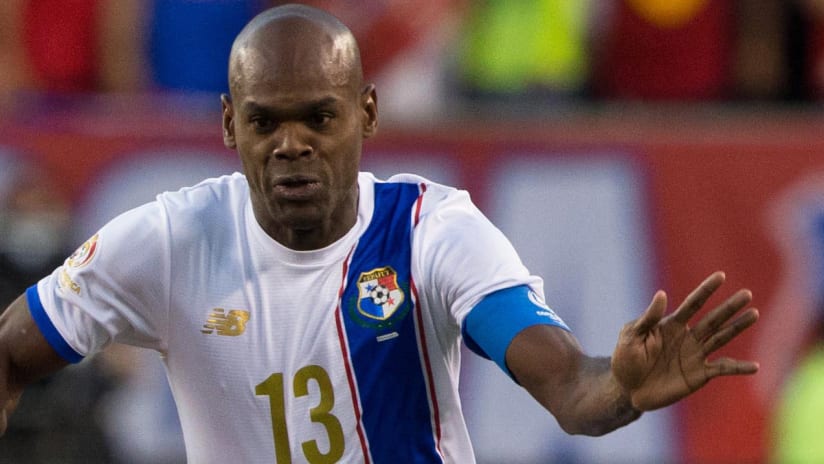FOUR CORNERS, Fla. – Panama head coach Hernan Dario Gomez turned heads 113708618" tabindex="0">on Wednesday afternoon when he announced that his squad would not hold 113708619" tabindex="0">Thursday’s training session, their final one before 113708620" tabindex="0">Friday’s massive World Cup qualifier vs. the United States (7 pm ET; ESPN2, Univision, UDN), on the pitch at Orlando City Stadium as is customary in these situations. They’ll instead continue to work out at ChampionsGate, a posh resort community in this quiet area some 45 minutes southwest of the city.
It’s a departure from the norm and just the sort of quirky move that “Bolillo” is known for. But it probably won’t ruffle his players too much. After all, most of them are familiar with Orlando City SC’s home, and most other MLS venues as well.
Six members of Panama’s current roster play for MLS clubs, and another seven have stints in the league on their resumes. That experience has served both the players and their national team well in recent years, and it can only help them as they look to knock off the favored US and stay on course for the first World Cup appearance in their small country’s history.
“It levels the playing field,” David Sakata, a Panama-based journalist with Diario Pro and Cable Onda Sports, told MLSsoccer.com.
In MLS, Los Canaleros find a stable, well-run league where the culture is relatively similar to their homeland, the paychecks arrive on time, travel back and forth for national-team duty is manageable and the level of play is demanding. Competing both alongside and against US internationals fosters a familiarity that has helped to close the gap that once separated the two programs.
“Players see two things about MLS,” explained Sakata. “There’s job security, and payment security, that you don’t find some places in South America. We see players coming back from Colombia and Venezuela who are now playing in MLS that suffered from months without pay.
“Then there’s the exposure that the league has, either by digital standards or TV. The league is broadcast in Panama, we can get the games in cable, whether FOX or ESPN. So you’re able to see the players more frequently, and that helps them be on the eye of the coaching staff of the national team.”
Sakata noted that a player like New York City FC’s Miguel Camargo (who is out for the year due to injury) gets the rare experience of playing with and being coached by World Cup winners David Villa, Andrea Pirlo and Patrick Vieira at NYCFC – no small attraction to someone plying their trade in Panama’s relatively humble domestic league.
In fact, the steady growth of MLS has fueled improvement across CONCACAF by providing new opportunities and challenges for the region’s talent pools. It’s a savagely ironic twist of fate that this phenomenon has made the road to the World Cup markedly more difficult for the USMNT – the very team that the league was founded, at least in large part, to help.
“MLS is a very good league, and it’s proven to be a place for players from these countries to improve and gain experiences,” said US and Atlanta United goalkeeper Brad Guzan. “They take that back to their national teams, and you can clearly see they have grown from it.”
Sporting KC’s Matt Besler is uninclined to compare the challenges of this qualifying cycle with previous editions, but he, too, has seen the region’s smaller teams make dramatic gains.
“MLS has helped Panama improve, along with a number of CONCACAF nations,” he said 113708621" tabindex="0">on Tuesday. “There's no sense in us players comparing what CONCACAF was like in the past, or what it's going to be like in the future. All that matters for us is what it's like right now. Currently, it's a tough region with many difficult teams. Each nation we face has talented players and can beat you if you're not at your best.”
Is this aspect of MLS making life harder for the USMNT? Fullback and former Seattle Sounder DeAndre Yedlin doesn’t think so – but his words underline the extent to which Panama, who were something of a CONCACAF minnow in previous generations, are now seen as worthy adversaries.
“They’re certainly more familiar with our players,” he said when asked about the role MLS has played in Panama’s growth. “But we know what we need to do and everybody has bought into the game plan, and we know what’s at stake. So whether they’re familiar with our players or not, they could’ve played us a thousand times before – it doesn’t matter.
“We know what we need to do, they know what they need to do. I’m sure they have a game plan as well and we’re both going to try and go out and execute it.”












